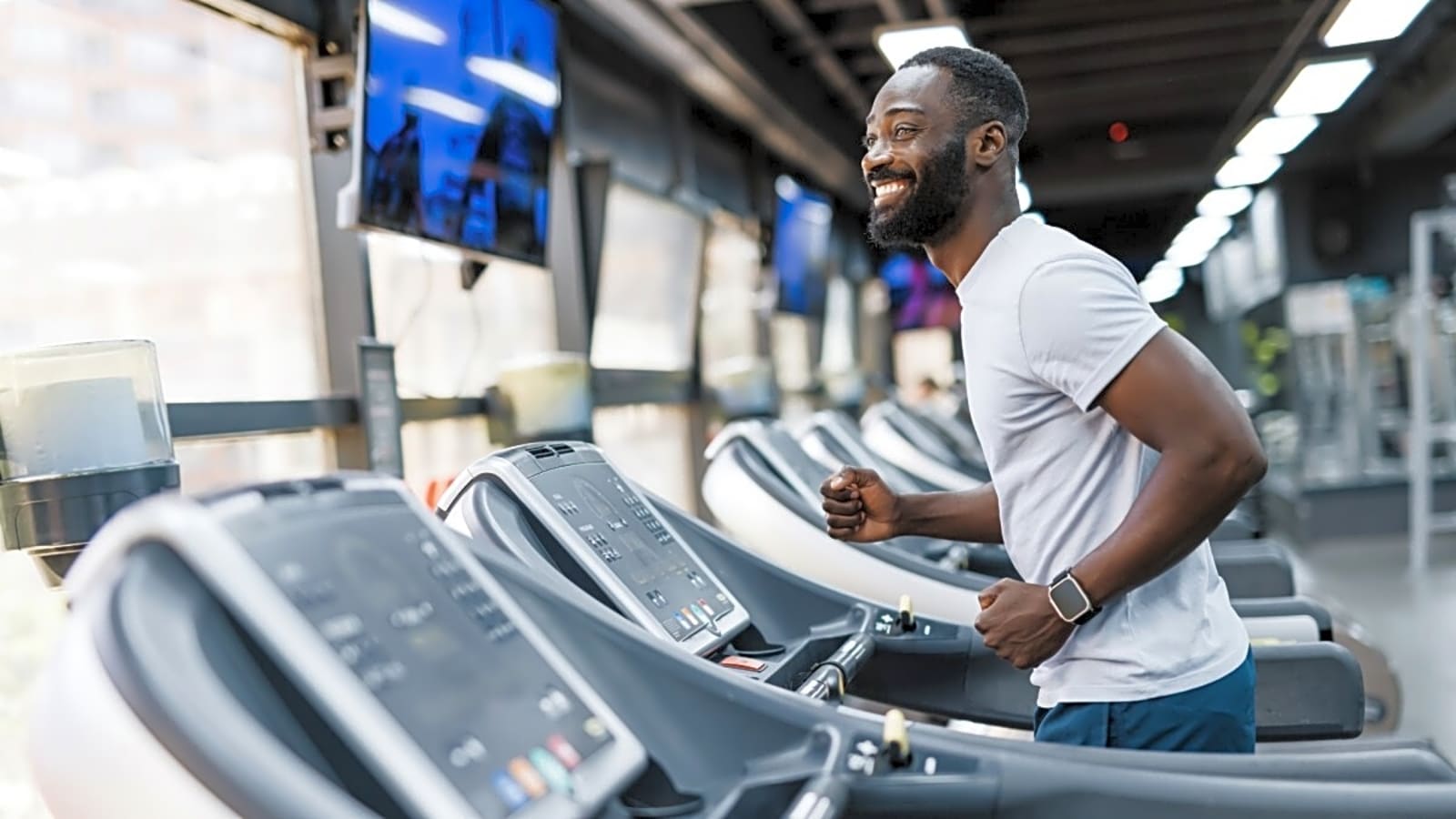
No matter who you are, getting into a workout routine can be a real struggle. Getting out of bed or skipping your nightly binge-watch just to lift some weights or hop on the treadmill feels like a chore. But if you can manage to get started with a workout and stick with it for just 20 minutes or so, you'll start feeling the endorphin rush. And once you get consistent with a program and start noticing progress in terms of how you feel and your physique, it gets easier to show up for your workouts.
If you haven’t reached that sweet spot yet, getting yourself to the gym can still be a challenge. The good news? Today’s technology makes it easier than ever to track your progress in real time and stay motivated. According to a new study, using wearable technology not only boosts motivation but also makes you seven times more likely to stay active for months on end.
The study published in BMJ Open followed 125 adults between the ages of 40 and 75 who had recently been diagnosed with type-2 diabetes. Study participants worked with an exercise specialist who helped them come up with a six-month physical activity plan personalized to them.
Participants were then split into two groups: one involved wearing a smartwatch that tracked movement and heart rate and sent members text messages based on their progress, while the other group worked out without any tech. The wearable group could also get real-time messages from their coach during workouts.
The results surprised the researchers. Compared to the group without smartwatches, the wearable group was 10 times more likely to work out regularly. After six months, they were still seven times more likely—and even after a year, their activity levels stayed higher.
By the end of the program, over half of the smartwatch group were hitting the recommended activity levels. Meanwhile, only 17 percent of the control group managed to keep up.
"For the first time, our research provides compelling evidence that wearable technology offers a practical and effective solution to increase physical activity levels, potentially transforming health outcomes for people with type-2 diabetes,” Rob Andrews, associate professor of diabetes at the University of Exeter, said.
More must-reads:
- Hornets, Suns pull off massive draft-night trade
- Former MVP becomes first player to commit to Home Run Derby
- The 'NBA's No. 1 draft picks' quiz
Customize Your Newsletter
 +
+
Get the latest news and rumors, customized to your favorite sports and teams. Emailed daily. Always free!








